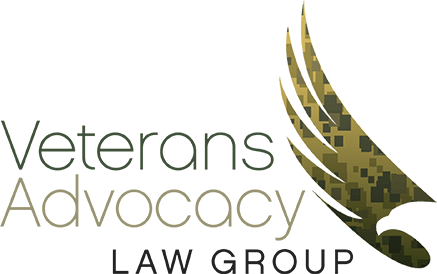
What Are Veteran's Disability Benefits?
These benefits are designed to compensate veterans for the loss of quality of life and civilian employability. The Veteran’s Benefits Administration considers disability benefits to include money that is paid to a veteran who has a disease, injury, or “service-connected” condition. A service-connected condition includes an illness that an individual sustained or had aggravated as the result of military service. In many cases, veterans’ compensation is measured on a scale that ranges from 10 percent to 100 percent, based on the percentage of an individual’s disability.
VA Disability Ratings
Even an individual with less than a 100 percent disability might be given this rating if the veteran is unable to work due to a service-connected condition. If a veteran claims more than one injury, the Veteran’s Administration will combine rating scores for all injuries using a Combined Rating Table to arrive at a total disability rating. The Veterans Benefits Administration’s disability rating change over time as an individual’s injury grows worse or improves. Many veterans who qualify for Veteran’s Benefits Administration Disability Compensation also qualify for Special Monthly Compensation, which is a program intended to help those with particularly severe injuries including lost limbs.
Individual Unemployability Program
Veterans who qualify for this program will receive extra compensation in addition to disability benefits. Knowing the difference between compensation vs pension benefits can mean extra income for veterans. Another program, the Individual Unemployability Program permits payments of total disability to veterans who are rated at least 60 percent for a single injury and cannot work as a result of their disability or who rated at least 40 percent for a single injury and have an overall 70 percent or greater disability rating.
Our attorney for VA disability can evaluate your unique situation and help you understand what benefits you are entitled too.

Understanding the Veterans Disability Claims Process
Filing a veterans disability claim can be a complex and overwhelming process. At Veterans Advocacy Law Group, we are dedicated to guiding and supporting veterans through every step of the claims process. Our experienced attorneys have in-depth knowledge of the VA system and can help you navigate the intricacies of filing a successful claim.
Here is an overview of the veterans disability claims process:
- Gather necessary documentation: Our team will assist you in gathering all the necessary medical records, service records, and supporting documentation to strengthen your claim.
- Complete the application: We will help you complete the required VA forms accurately and thoroughly, ensuring that all necessary information is included.
- Submit the claim: Once the application is complete, we will submit your claim to the VA on your behalf, ensuring that it is filed within the required timeframe.
- Review and decision: The VA will review your claim and make a decision regarding your eligibility for disability benefits. Our attorneys will closely monitor the progress of your claim and advocate for your rights throughout the review process.
- Appeals process: If your claim is denied or you disagree with the VA's decision, our team will assist you in filing an appeal and represent you during the appeals process.
At Veterans Advocacy Law Group, we understand the challenges that veterans face when seeking disability benefits. Our goal is to provide personalized and compassionate legal representation to ensure that you receive the benefits you deserve. Contact us today for a free consultation.
Compensation vs Pension Benefits for Veterans
Veterans who file a claim for disability benefits should know the difference between compensation and pension to better understand what kind of benefits will best suit them and the process required to obtain these benefits.
- VA Disability Compensation - Veterans' disability compensation is a monthly, tax-free payment provided to veterans who were injured or acquired an illness during their military service, or, whose existing condition was worsened while serving in the military.
- Veterans’ Pension Program - Wartime Vets who meet certain age, disability, net worth, and income requirements may be entitled to monthly payments through the Veterans’ Pension program.
The main difference between VA disability compensation and VA pension is that one is awarded based on the level of disability, while the other is awarded based on financial need.
If you have any questions regarding your VA disability claim in general, our skilled veteran’s law attorney can help you obtain the compensation you earned. We only charge a fee if your appeal is successful.
Other Veteran Services Offer:
Yes, You Should Hire an Attorney for Your CAVC Appeal
Every individual or business facing a legal issue confronts the question of whether or not to hire an attorney. Whether in civil or criminal cases, the hiring of an attorney is a choice. You can pay to hire an attorney or appear as a pro se litigant. Pro se is a latin phrase meaning “for oneself” or “on one’s on behalf.” We strongly believe that, if you are appealing a disability determination to the U.S. Court Of Appeals for Veterans Claims (CAVC), you should be represented by an experienced VA disability attorney. Here are three reasons why:
1. This is Your Last Chance
If you are looking to appeal your VA disability benefit denial to the CAVC, that means your initial application was already denied, as was your Board of Veterans Appeals (BVA) appeal of that decision. Typically, this is an indication of one of two problems: either your application and proof are lacking, or your case is questionable. An experienced attorney can help you identify which of these is the underlying difficulty and help craft an effective appeal to the CAVC by minimizing these issues. The CAVC is typically your last chance to win your appeal.
2. You’re in Court
The other stages of the veterans’ disability application and appeals process occur within the Veterans Health or Benefits Administration, where looser agency rules and laws apply. The CAVC judges are appointed by the President and confirmed by the Senate, the same way Article III judges are. It is more formal, and the law is applied strictly. There are substantive and evidentiary rules that one must be aware of in order to present a persuasive case.
3. Pro Se is More Expensive in the Long Run
Representing yourself at the CAVC rather than hiring an attorney may seem like the more inexpensive option. It’s free after all, right? Wrong. The cost of representing yourself could mean losing your case, which would mean you would not receive the veterans’ disability benefits to which you are entitled. This is a cost of thousands of dollars per month for many. Is it worth the risk?
Caveat: Yes, We Are Attorneys
Yes, we are attorneys, so there is some bias. However, even within the profession, the risks of representing oneself in a legal action are well known. In fact, a common proverbial warning to attorneys is “the attorney who represents himself has a fool for a client.”
Do not hesitate to contact us at either the Veterans Advocacy Law Group to obtain the assistance you need by calling (888) 680-9612 or by completing a quick and convenient online form to speak with one of our VA disability lawyers.

The Veterans' Attorneys
-
Serving Veterans Nationwide
-
Excellent Results, 5-Star Reviews
-
Fighting With Compassion & Conviction
-
Service-Disabled Veteran-Owned Business


